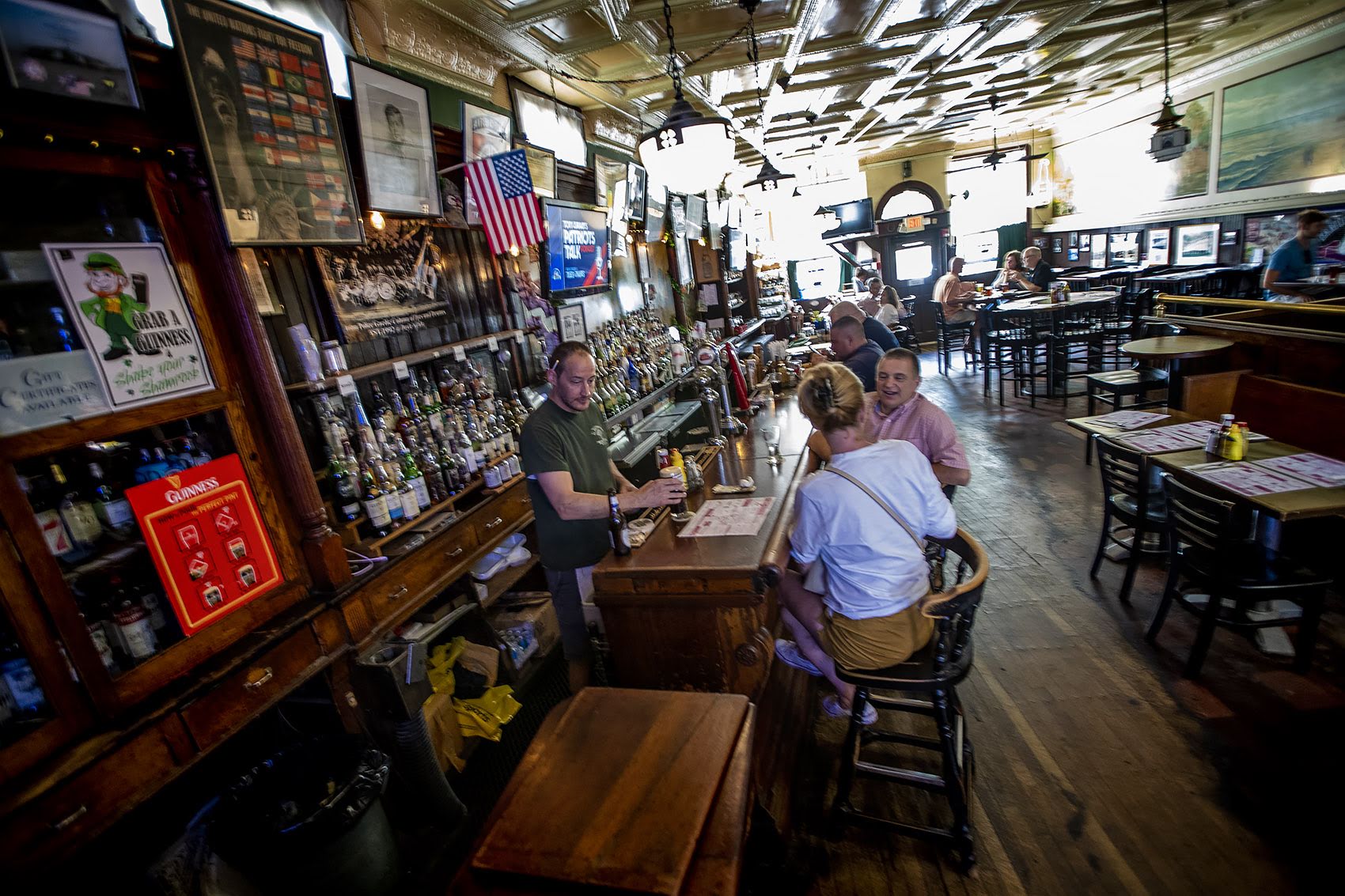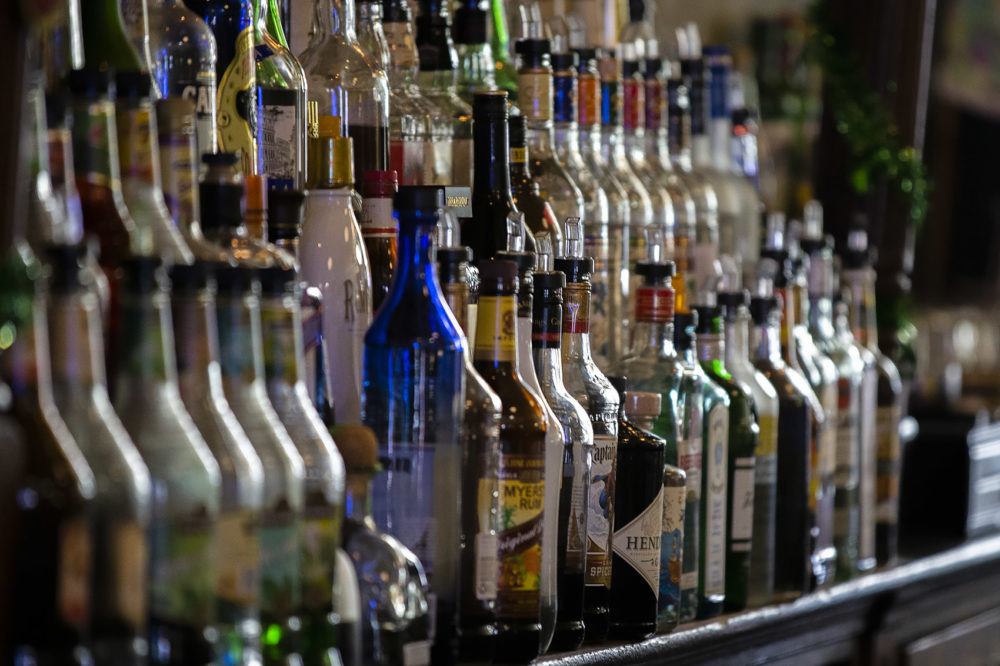Advertisement
The Memories At Doyle's Are Priceless. The Liquor License Costs $455,000
Resume
Sporting his father's old tweed cap, Brian Fahey sidled up to the bar at Doyle's Cafe in Jamaica Plain for the final time.
He came with childhood friend Brian Moriarty on a pilgrimage from the suburbs to the spot — the exact spot — where their dads enjoyed many a round.
"They spent a lot of time here in these specific bar stools," Fahey said on a recent afternoon, sitting just a few feet from where a picture of his father hangs on a wall. "It's a small bit of history that we wanted to try to make a last run on."
The regulars at Doyle's will tell you that the memories they've made over a pint or two are priceless. But as this Boston institution prepares to close after more than a century, it turns out you can put a price on the right to serve those pints — and it's almost half a million dollars.
While Fahey and Moriarty wondered whether Doyle's might sell stools or other mementos when it shutters, the bar's most coveted keepsake was already spoken for. Davio's Northern Italian Steakhouse plans to purchase the liquor license and put it to use at a new location in the Seaport. Since Boston's limited number of licenses are all taken, the chain is paying $455,000 for Doyle's.

"We're not happy about it; the system here is crazy," Davio's owner Steve DiFillippo said after the Boston Licensing Board approved the sale last week. "New York City gives 'em out. There's no market like this in New York."
That's true, though there are other cities with rules similar to Boston's, said attorney John Connell, who represents Doyle's and has become something of a liquor license historian. Navigating the legal ins and outs of the system is the majority of his practice. As Connell explained, a license like the one at Doyle's is an asset that can be sold separately from the business.
"The people who designed these laws recognized that most bars and restaurants are family-owned, or they used to be, and they want to be able to pass them on to their family," Connell said. "Or, at the end of their life cycle, they want to be able to sell it to somebody, so it was an essential component of selling your restaurant or bar that you could sell your liquor license. And that's how we got here."
State lawmakers built the licensing framework in 1933, the year Prohibition ended. Doyle's was one of about 80 Boston bars and restaurants that got licenses on the day the national drinking ban lifted, according to a Boston Globe report at the time.
If you map all those establishments, you see clusters downtown and in Back Bay, and deserts in neighborhoods such as Roxbury and Roslindale.
Disparities visible on day one persist today.
"The system was flawed. The system was discriminatory," said Malia Lazu, an executive vice president at Berkshire Bank who has studied licensing patterns as the founder of Urban Labs, a Boston consulting firm focused on diversity.
Lazu points out that in recent years, state lawmakers have approved new licenses in Boston neighborhoods where there are few. But she knows not everyone is happy about that.
"Change is scary for people, and not everyone gets to always be the privileged people," she said. "And that's important, too, especially in a community as diverse and as young as Boston."
New licenses benefit businesses that couldn't serve alcohol before, but they can hurt bar and restaurant owners who invested large sums in the system.
Charlie Redd paid hundreds of thousands of dollars for a liquor license in 2011 for his Roslindale restaurant, Redd's In Rozzie. The scarcity of licenses in the neighborhood helped make the bar a big draw.
But when the city began to issue new licenses — at a fraction of the market rate — he feared for the future value of his license. So he sold it last year, while it could still fetch top dollar.
"I was looking at losing roughly $350,000 to $400,000 in value and everything that's attached to that, which would have been loss of home; the entire restaurant would have been lost," Redd said. "It was all leveraged with the value of that license. It was very scary. I felt that I had to sell it, at that point."
Redd, who now owns a pizza shop in Somerville, said he misses running a bar. And people in Jamaica Plain say they'll miss Doyle's, unless whoever buys the property decides to save it. But that buyer would also have to purchase a Boston liquor license.
Redd said that's something he'll never do again.
This segment aired on September 26, 2019.
